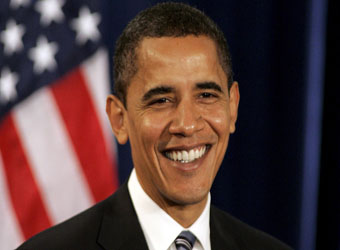In the unfolding crisis of governance in Egypt, President Barack Obama is in the position of a referee in a tennis match: He has little if any control over the actions of the contenders or the outcome of the contest, but the loser can always blame him.
Supporters of longtime ruler Hosni Mubarak blamed the United States when he was removed by the military in response to mass protests. Opponents of Mohammed Morsi accused the administration of overlooking the new president’s authoritarian bent.
After Morsi’s removal Wednesday, his followers in the Muslim Brotherhood suspected Washington of engineering the military’s seizure of control. As former State Department official Michelle Dunne told The New York Times, “We’ve managed now to alienate both sides in Egypt.”
For the U.S. government, coping with the Arab Spring has been a complex challenge, and nowhere more than in Egypt. Mubarak’s government was an ally that upheld its peace treaty with Israel, and Washington rewarded him by making Egypt the second-biggest recipient of American aid. But when his people rose up against him, Obama had little choice but to side with them in their demand for democracy.
As Morsi took steps to monopolize power and move Egypt toward Islamist government, the administration urged it to offer ways to appease its critics. As the backlash developed, American officials told The Wall Street Journal, it also implored the military not to intervene. Neither side listened.
So now the U.S. faces a dilemma. It depends on good relations with Cairo to keep the peace with Israel, and it hopes to exert some influence on what the generals do next. But the law bars financial aid to “any country whose duly elected head of government is deposed by military coup d’etat.” Assistance can resume only when “a democratically elected government has taken office.” The president has no authority to waive the rule.
It’s hard to deny that a military coup occurred, though the president has refused to use the term. Even former House Foreign Affairs Committee Chairman Howard Berman, who opposes a cutoff, told The New York Times, “Under the plain meaning rule, there was a coup.”
But the new government claims this was a popular uprising that the military facilitated purely to avert mass bloodshed. And congressional leaders show no urgency about enforcing the rule. No one is eager to take a step that could have unforeseen consequences.
Luckily, there is no immediate need. The U.S. has already provided its annual contribution for this year, with the next payment not due until May. By then, the government may have held new elections, which if handled fairly would meet the conditions for continued aid.
For the time being, the administration should be in no rush to reach a determination. It should also let the new government know it had better get busy putting a new democratic system in place. Should it fail, Obama may find it advantageous to use a possible or actual aid cutoff to extract reforms — or he may feel obliged to ask Congress to amend the law to let him keep it going.
Morsi was a democratically elected president who posed a real threat to democracy. The military, with a great deal of public support, has stepped in to head off that danger. The question is whether, in the end, it will return control to the people or maintain its own power. U.S. financial aid is a card to play, when the time is right.
Source: Chicago Tribune
